Karakoram Highway, Pakistan
The Karakoram Highway (KKH) is the highest paved international road in the world. It connects China and Pakistan across the Karakoram mountain range, through the Khunjerab Pass, at an elevation of 4,693 metres (15,397 ft). It connects China’s Xinjiang region with Pakistan’s Gilgit–Baltistan and Khyber Pakhtunkhwa regions and serves as a popular tourist attraction. Due to its high elevation and the difficult conditions in which it was constructed, it is sometimes referred to as the “Eighth Wonder of the World. The Karakoram Highway, also known as the Friendship Highway in China, was built by the governments of Pakistan and China. It was started in 1959 and was completed in 1979 (open to the public since 1986). About 810 Pakistanis and about 200 Chinese workers lost their lives, mostly in landslides and falls, while building the highway. The Chinese workers who died during the construction are buried in the Chinese cemetery in Gilgit. The route of the KKH traces one of the many paths of the ancient Silk Road. In 1987, a few months after the Highway was opened to the public, I travelled along it from Gilgit to Kashgar.
My journey took me to Karimabad and Sust. In Karimabad, the capital of Hunza in Gilgit-Baltistan, northern Pakistan. Karimabad is also known as Baltit. It is named after Prince Karim Aga Khan, the spiritual head of Shia Ismaili Nizari community. I waited in Sust for a bus that would take to the Chinese border. Sust or Sost is a village in Gojal region of the Northern Areas of Pakistan. It is the last town inside Pakistan on the Karakoram Highway before the Chinese border. The town is now an important place on the highway for all passenger and cargo transport because all traffic crossing the Pakistan-China border passes through this town; the Pakistani immigration and customs departments are based here.
Pakistan and China have opened border for trade and tourism at Khunjerab. In 1987, Sust was a small village with little of the infrastructure needed to support the traffic crossing the border. My “Tabaq Hotel” was quaint and owned by a cook called Sher Khan. Astonishingly, he had been the cook on an Expedition led by someone that I knew. He had even been to England and stayed with the family of a friend of mine…
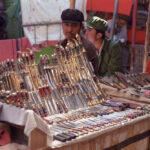

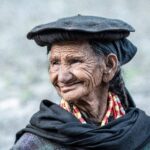
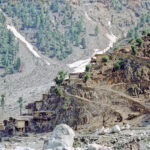
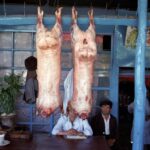
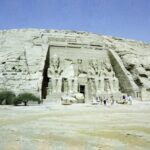
Leave a comment